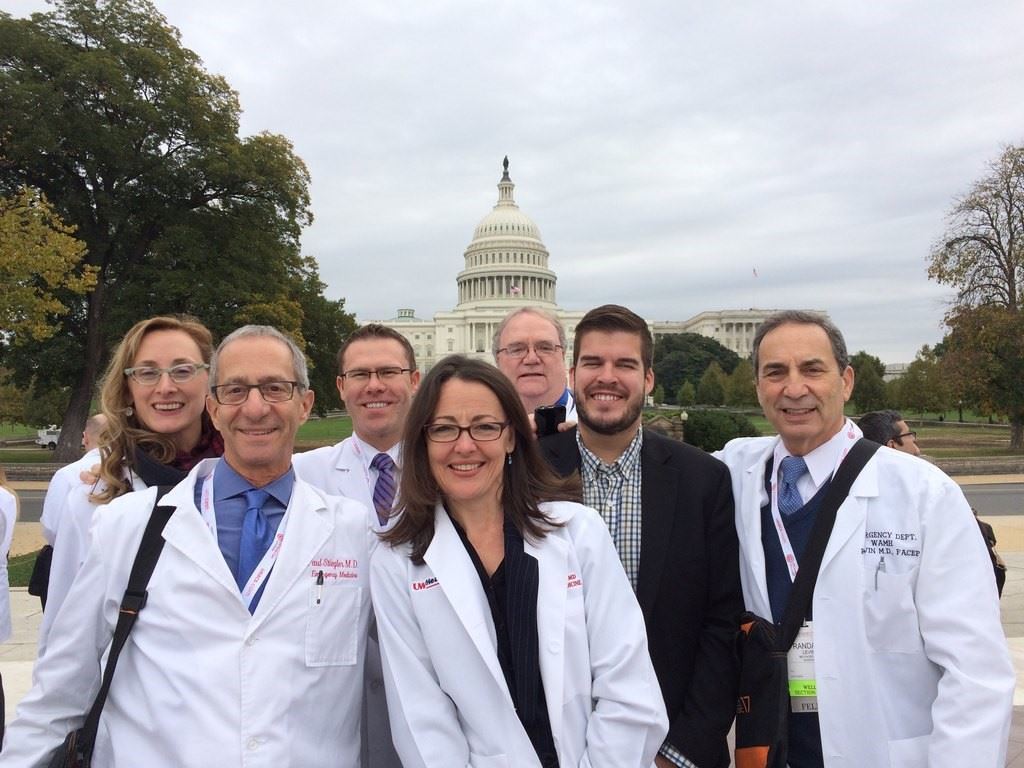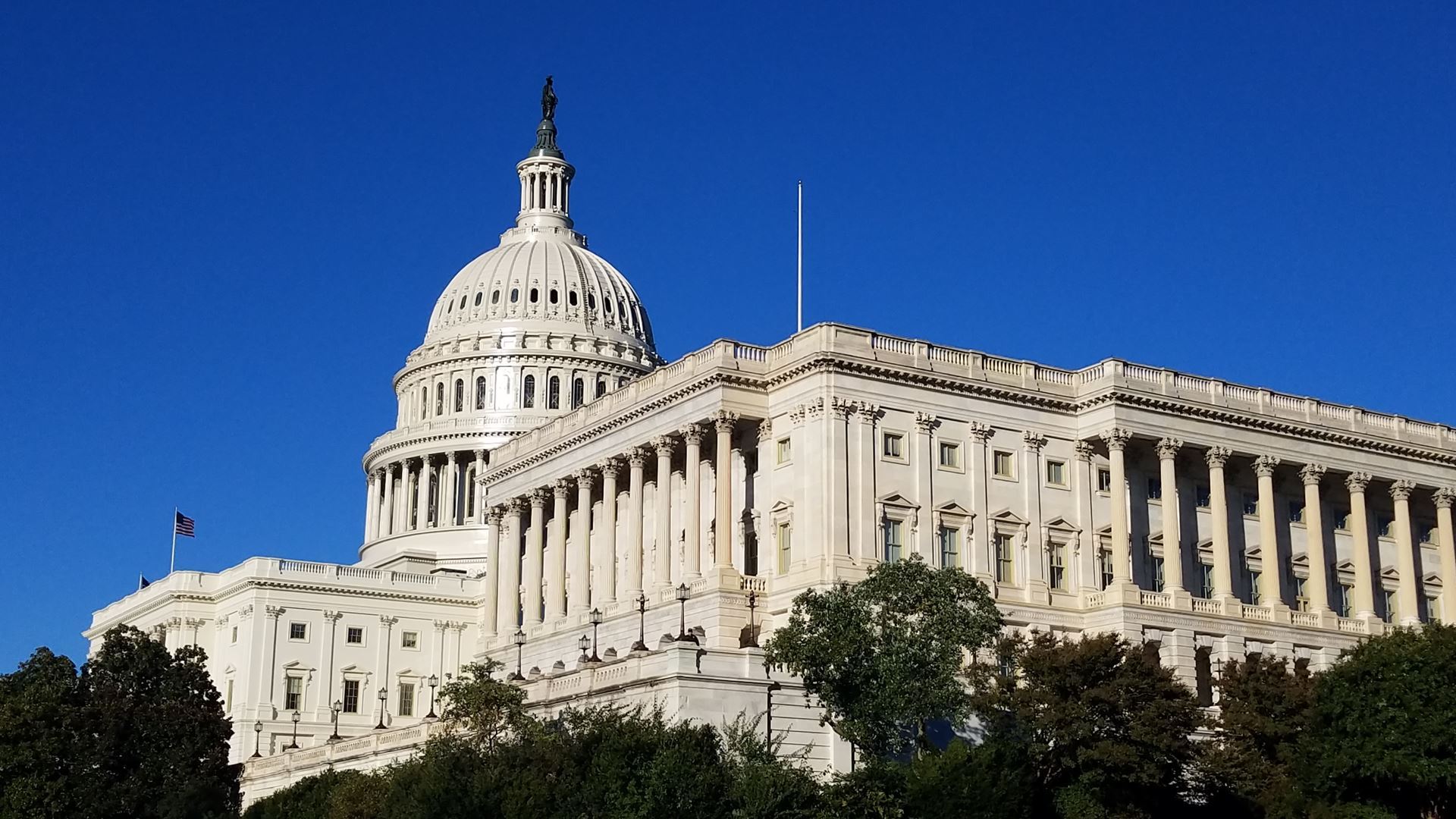
By Bradley Burmeister, MD
WACEP Board of Directors
On November 1st, seven Wisconsin physicians stood up for our profession at White Coat Day on Capitol Hill during the ACEP Scientific Assembly. Members met with both Wisconsin senators as well as several representatives from throughout the state. During their visit to Capitol Hill, Wisconsin ACEP members advocated for two key issues: 1) Liability tort coverage for federally mandated EMTALA-related services and 2) Information regarding the prudent layperson standard and potential violations of existing law.
 The first issue is regarding HR 548 and SB 527, the Health Care Safety Net Enhancement Act. This resolution provides federal legal protections for physicians and on-call consultants providing EMTALA-related care much like physicians in the VA, Indian Health Service, and FQHC’s have. Having protections such as these would likely decrease the cost of liability coverage, encourage emergency physicians to relocate to locations where the liability environment is less than ideal, and also incentivize more robust coverage by on-call specialists.
The first issue is regarding HR 548 and SB 527, the Health Care Safety Net Enhancement Act. This resolution provides federal legal protections for physicians and on-call consultants providing EMTALA-related care much like physicians in the VA, Indian Health Service, and FQHC’s have. Having protections such as these would likely decrease the cost of liability coverage, encourage emergency physicians to relocate to locations where the liability environment is less than ideal, and also incentivize more robust coverage by on-call specialists.
 The second issue relates to the prudent layperson standard, which is law in federal institutions as well as in 47 states (including Wisconsin). Recently, insurance companies have started to once again use antiquated scare tactics to inhibit patients form pursuing care in the emergency department. The decision to cover the cost of care is being based on the discharge diagnosis. For example, a patient in Georgia reportedly was in a motor vehicle crash and had an emergency department evaluation which fortunately was able to exclude a significant injury. The patient was discharged with a diagnosis of “cervicalgia.” Astonishingly, this was not covered as the insurance company deemed the diagnosis non-emergent, even though a more emergent diagnosis could have been made had it not been ruled-out by the treating provider. Emergency care only encompasses about 2-3% of health care dollars and these tactics have not been proven to be effective. Already, roughly 40% of patients defer obtaining emergency care due to fear of expense. These tactics could lead to a delay in obtaining care when an emergent condition does present. This delay could cause harm.
The second issue relates to the prudent layperson standard, which is law in federal institutions as well as in 47 states (including Wisconsin). Recently, insurance companies have started to once again use antiquated scare tactics to inhibit patients form pursuing care in the emergency department. The decision to cover the cost of care is being based on the discharge diagnosis. For example, a patient in Georgia reportedly was in a motor vehicle crash and had an emergency department evaluation which fortunately was able to exclude a significant injury. The patient was discharged with a diagnosis of “cervicalgia.” Astonishingly, this was not covered as the insurance company deemed the diagnosis non-emergent, even though a more emergent diagnosis could have been made had it not been ruled-out by the treating provider. Emergency care only encompasses about 2-3% of health care dollars and these tactics have not been proven to be effective. Already, roughly 40% of patients defer obtaining emergency care due to fear of expense. These tactics could lead to a delay in obtaining care when an emergent condition does present. This delay could cause harm.
In terms of updates from our legislators, representatives let the Wisconsin ACEP team know that, within health policy, there are relatively few issues being actively debated, primarily due to the focus is on tax reform. It’s anticipated; however, that the energy will renew next year so keep checking the Wisconsin ACEP website for updates and action alerts. Also, be sure to attend Wisconsin's Doctor Day 2018 on Tuesday, January 30 in Madison for your own opportunity to advocate for emergency medicine!